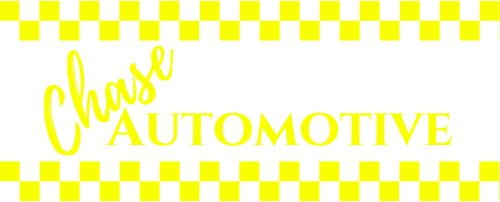No matter how carefully you drive, emergencies happen. Whether it’s an inconvenient flat tire, a bad car accident, or unpredictable weather, the last thing you want is to be stuck unprepared, stranded on the side of the road. And while emergencies may be inevitable, you can be ready to handle common situations with an auto emergency kit!
Auto emergency kits can be purchased in most auto parts stores, online, and even at stores like Walmart, but it’s easy to create your own. Below are ten things you should include in your auto emergency kit:
- Cell phone charger – Most people own and carry their cell phone nearly constantly. Using your cell phone while driving is always a bad idea, but it can be nice to have one with you in cases of emergency. It is best have your phone fully charged before you set out – Add a cell phone charger that plugs into your car’s cigarette lighter or other power source to your kit.
 Reflective hazard triangles – These you may not have on hand, but you can find them at most auto supply stores or online. Reflective, pop-up hazard triangles can be placed in the road to warn other cars of your presence. Battery operated lights or flares can serve the same purpose.
Reflective hazard triangles – These you may not have on hand, but you can find them at most auto supply stores or online. Reflective, pop-up hazard triangles can be placed in the road to warn other cars of your presence. Battery operated lights or flares can serve the same purpose.- Jack and lug wrench – Most vehicles come equipped with these tools for changing a flat tire. You should also have a spare tire, and check the air pressure in it periodically (toss a tire gauge in the kit for good measure). Find the jack and wrench in your car, and know how to use them.
- First-aid kit – Keep a supply of bandages, antibiotic ointment, and pain reliever in your car. It’s best to find build or buy a first-aid kit with supplies for treating a range of issues, including cuts and burns.
- Jumper cables – Lights left on all night, cold weather, and old batteries may leave you needing a jump start. Keep a pair of jumper cables in your car (don’t rely on a Good Samaritan to have one) and review how to jump start your car.
- Small bills and change – Whether you need to place a call on a pay phone or purchase snacks, keep a supply of cash for varied use in emergencies.
- Water and nonperishable food – Being stuck on the side of the road is bad enough, you don’t want to add hunger and thirst in the mix. A supply of snacks and water will keep you hydrated and satisfied until help comes. Don’t store perishables, like fruit, in your car for extended times.
- Spare fuses – Many electrical problems can be as simple as a burned out fuse. Keeping a spare fuse or two can help you get back on the road quicker! But not all fuses are created equal – be sure to have the appropriate type for your vehicle, and know how to change them properly before attempting on your vehicle. Refer to your owner’s manual or give us a call for advice.
- Gloves – Dealing with greasy parts and tools can wreak havoc on your hands. Keep a pair of work gloves for emergency repairs. They also help keep you warm in cold weather emergencies.
- Flashlight – Emergencies happen at inconvenient times. A flashlight can be invaluable at night to help changing a tire, exchanging insurance information, or walking outside the car. Even in the daylight, a flashlight can help illuminate issues under the hood. (It’s a good idea to keep extra batteries in your kit, too!)
You probably have most of these items already… gathering them up and keeping a set in your vehicle will help you in emergencies. Keep the phone number for roadside assistance in Aurora, CO and our shop in your glove box – 303.344.4670 – give us a call anytime, we are here for you!
